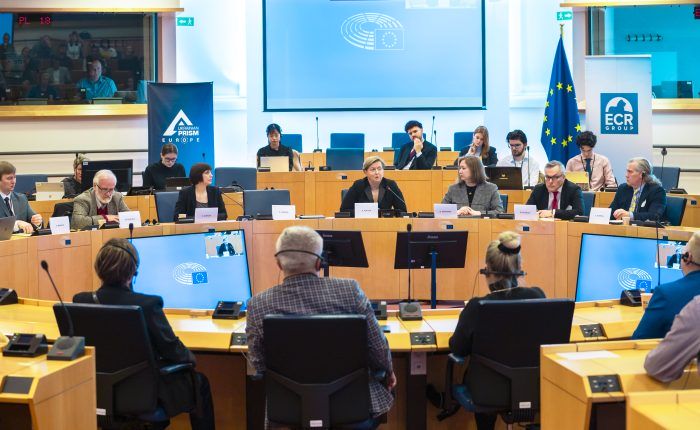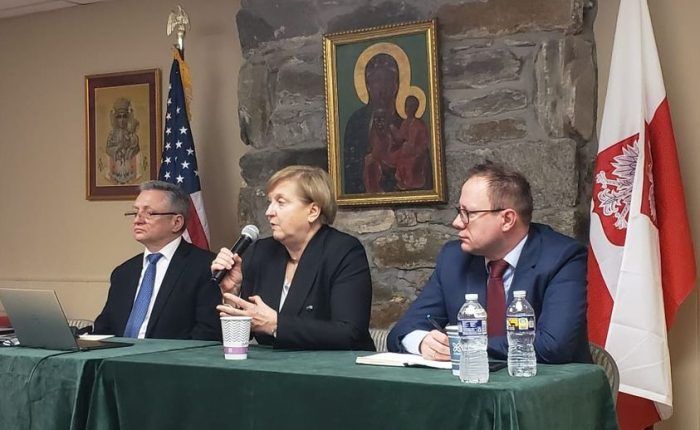15 years ago, the Russian Federation invaded Georgia. It was not just a regional conflict – as some wished to describe it – but an event that impacted global security in a way only few at that time could predict. It was the first direct act of military aggression of post-communist Russia against an independent state. It was a test of Georgia’s independence, the unity of the region and the credibility of the rules-based international order.
Georgia passed this test with brave soldiers and competent authorities, its people ready to defend their country. My region, Central and Eastern Europe, with a joint expedition of the leaders of Poland, Ukraine, Lithuania, Latvia and Estonia to Tbilisi, led by the late President Lech Kaczynski, demonstrated solidarity, showing to the entire world that we are not afraid of Russia and that we are ready to risk even our own lives to oppose this invasion and the rebirth of Russian imperialism. The third factor that stopped Russian tanks from rolling into Tbilisi was the decisive action of the United States, including those of an indirect military nature.
But in 2008 we experienced another vision, in opposition to what the West and its values are about: a vision of realpolitik, with an equal treatment of an aggressor and its victim, with a ceasefire that appeared to favor Russian interests, falsely blaming the victim for provoking the aggressor. Instead of seeing the invasion as a wake-up call, the West ‘awarded’ Russia with the policies of reset and ‘business as usual’, with the most disgraceful Nord Stream 2 geopolitical project.
In the summer of 2008 Putin wanted the war as much as he wanted it in February 2022. Today everybody is aware that Russia is ready to utter any lie as a pretext to pursue its imperialistic goals. We have heard the most absurd words whitewashing Stalinist crimes, and even justifying the Ribbentrop-Molotov Pact. In 2022, 2014 and 2008 as in 1939 and 1940 Russia decided to invade its peaceful neighbors because it felt that it was allowed to do so. It felt the weakness of the West and its institutions, and it heard silence as an answer to its lies. The famous words of President Lech Kaczynski that firstly Georgia, then Ukraine, then perhaps the Baltic states, and then maybe it’s time for Poland, were quoted by many, not as a warning, but as an example of our Russophobia. There were attempts on those who knew Russia the best to be silent. We didn’t.
And this prophecy from Tbilisi, unfortunately, came true. For 15 years Moscow did nothing to implement its obligation under the 2008 ceasefire negotiated by France on behalf of the EU. On the contrary, Russia has flourished in impunity throughout its creeping annexation of 20 percent of Georgia’s territory. No surprise, in 2014 it decided to illegally annex Crimea and wage the war in Ukraine’s East. Those who negotiated the 2008 ceasefire were also behind imposing flawed Minsk agreements on Ukraine. Until 24 February 2022, we witnessed another wave of the policy of “understanding Russia”. In consequence, today we have a brutal war in Ukraine. Once more, it is the sacrifice of soldiers, the devotion of the entire nation and the solidarity of the region from the very first hours of the invasion, followed by military assistance and US support, that allowed the country to prevail. And once more, we should say it loudly: without Ukraine’s victory today, tomorrow it will be the Baltic states and Poland to face imperial Russia. And there will be no future for Georgia, Moldova or the people of Belarus. There’ll be no future for Europe either, as it will be rendered a Russian hostage, not only in terms of energy and geopolitics but also in terms of security.
In the past as well as in the contemporary public life, the true leaders of the region, have rejected any illusions about Russia. That’s why President Lech Kaczynski is not with us anymore. That’s why President Viktor Yushchenko was poisoned. And that’s why President Mikheil Saakashvili, despite numerous calls from the collective West’s leaders and institutions, remains Putin’s captive. I condemn the inhuman treatment of Mikheil Saakashvili and regret that it is followed by words and decisions of the Georgian government which contradict the spirit of unity and solidarity that saved Georgia in 2008, thus blurring the country’s Euro-Atlantic path.
But I also remember the voices of hesitation regarding the accession of Poland, Lithuania, Latvia and Estonia to NATO in the 1990s: that with the accession of our region to the Alliance, Europe’s security would be weakened. I heard similar voices at the NATO Summit in Bucharest. Today, our countries deliver stability and security to Europe, with Ukraine bravely and successfully defending the borders of our civilization.
That is why I am strongly convinced that there cannot be grey zones in our part of Europe. Ukraine’s victory is the only way to guarantee that Europe will be whole, free and at peace, and Georgia, within its internationally recognised borders, is an inseparable part of this vision.
Źródło: https://ecrgroup.eu/article/15_years_after_the_russian_invasion_of_georgia._lessons_to_be_learnt




